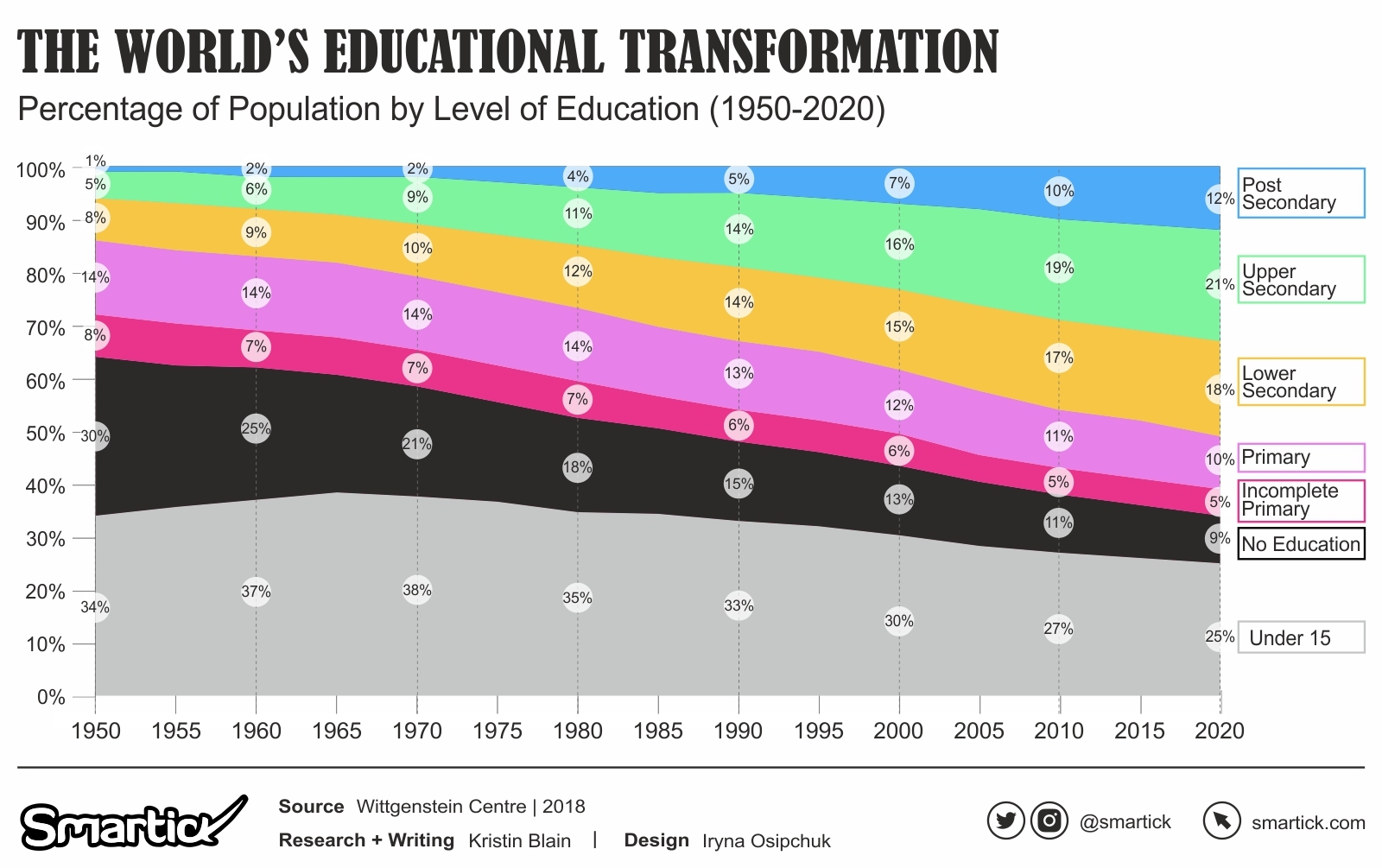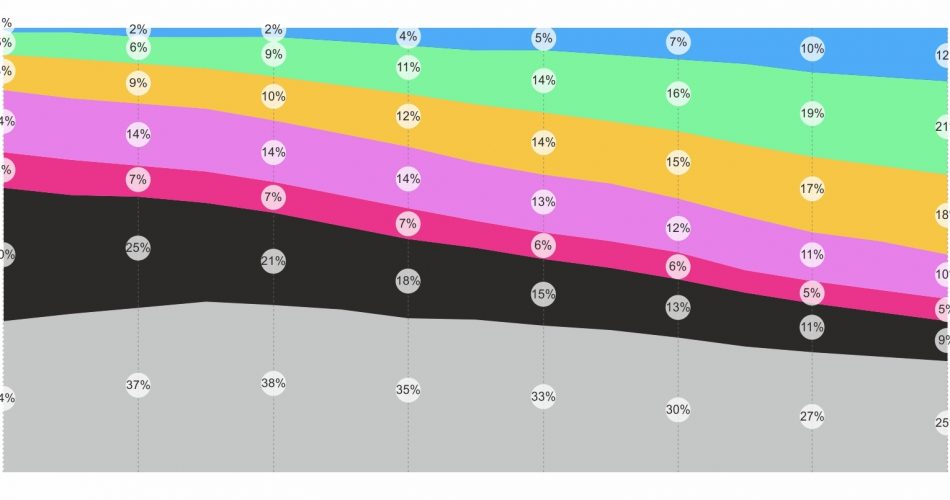
Education is a transformative force, empowering individuals with knowledge and skills to navigate life’s challenges. From the mid-20th century to today, global education has undergone an astonishing revolution. In 1950, only one percent of the world’s population had education beyond the secondary level. Fast forward to 2020, and 12 percent have achieved post-secondary excellence. This article delves into this incredible journey, revealing how education is reshaping societies and offering brighter futures for millions.

Historical Overview of Education Levels
Let’s rewind to the mid-20th century. In 1950, a mere one percent of the world’s population had education past the secondary stage. Shockingly, just under 10 percent of individuals above the age of 15 had no formal education whatsoever. Primary education was the endpoint for approximately 10 percent, with an additional five percent having incomplete primary school education. Access to education beyond primary school was a rare privilege.
Current State of Global Education
Fast forward to the year 2020, and we find a dramatically different scenario. The latest data reveals a more diversified educational landscape:
- No Education: Just under 10 percent of the world’s population above the age of 15 had no formal education.
- Incomplete Primary Education: About five percent had incomplete primary school education.
- Primary Education: Approximately 10 percent had completed primary education.
- Lower Secondary Education: Nearly 18 percent had been educated to the lower secondary level.
- Upper Secondary Education: A notable 21 percent of the population had attained upper secondary education.
- Post Secondary Education: The remaining 12 percent of the world’s population had achieved education past the secondary stage.
Trends and Changes Over Time
Analyzing the trends over the decades, a few noteworthy changes emerge. The most remarkable shift has occurred in the percentage of individuals attaining education past the secondary stage. In 1950, this was a mere one percent, but by 2020, it had risen to 12 percent. This signifies a substantial increase in access to post-secondary education, including college and university degrees, vocational training, and specialized education.
Another notable change is the expansion of secondary education. From the 1950s to 2020, the percentage of the population with access to secondary education grew significantly, from under 10 percent to nearly 40 percent. Secondary education has become a vital bridge preparing individuals for higher education or vocational training, with a profound impact on employability and societal contributions.
Importance of Education
The significance of education cannot be overstated. Education is not just about acquiring knowledge; it is a powerful tool for personal and societal development:
- Economic Prosperity: A well-educated workforce drives economic development, innovation, and competitiveness.
- Social Equity: Education helps reduce social inequalities, offering opportunities for individuals to break free from the cycle of poverty.
- Global Citizenship: In an interconnected world, education fosters global citizenship, enabling individuals to address pressing global challenges.
- Health and Well-being: Higher levels of education are associated with better health outcomes and longer, more fulfilling lives.
- Innovation and Progress: Education empowers individuals to think critically and drive positive change in their communities and the world.
Global Efforts to Improve Education
Recognizing the importance of education, global initiatives have been launched to increase access to quality education. Education is a fundamental human right, and efforts are ongoing to ensure that it becomes accessible to all, regardless of geography or socioeconomic background. The Sustainable Development Goals, set by the United Nations, include the goal of providing inclusive and equitable quality education for all by 2030.
The evolution of global education levels over the decades is a testament to the transformative power of education. From a world where the majority lacked access to formal education beyond primary school, we have come a long way. Education is not just a privilege; it is a fundamental right that must be accessible to all. As we continue to prioritize education, remove barriers to access, and invest in its quality, we pave the way for a more prosperous, equitable, and enlightened global society. Education is the key to shaping a brighter future for individuals and societies alike.

